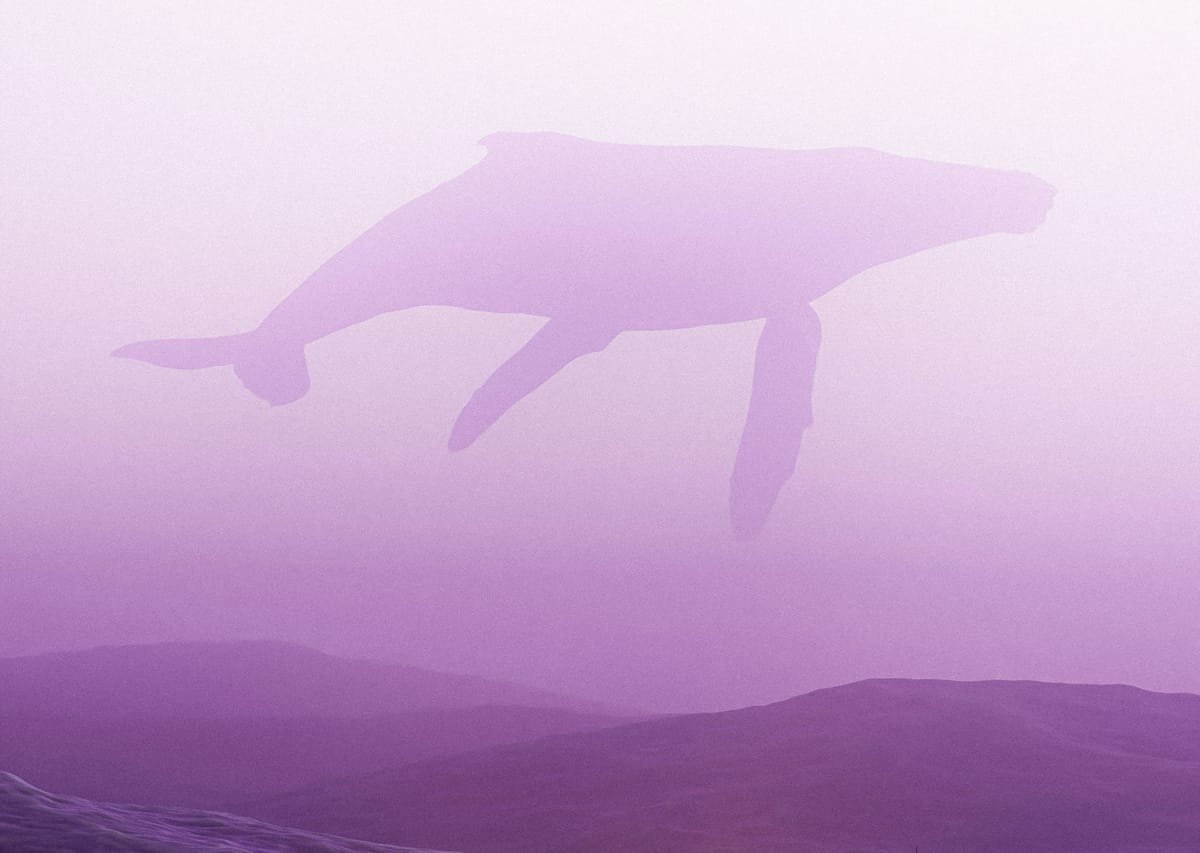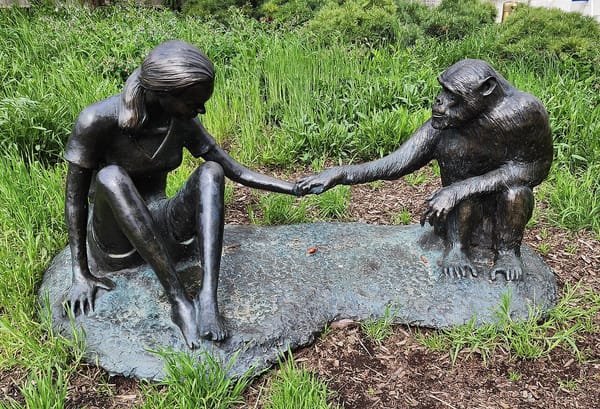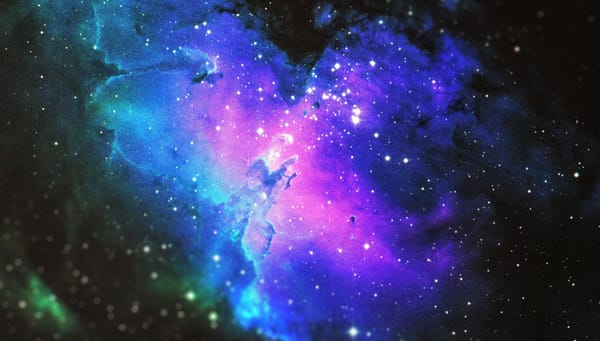Gentle yet final

A strange thing: a whale has washed up on a beach near Visakhapatnam. Not just any whale but a fully grown baleen, a hundred feet long and weighing about 40 tonnes (although I'm not clear how they were able to weigh it so quickly). Once recalled, it's not easy to forget a tale like The Melancholy of Resistance. It's predisposed to linger, and why not? A travelling circus brings the carcass of a giant whale to an apathetic town. Its decay begins to mock the townspeople's own social and moral decline, soon sending them careening into "carnivalesque" violence. Its sheer materiality and lack of meaning in the face of their turmoil highlights the absurdity of their existence.
This was futile speculation in any case for, being completely mesmerized by the whale, Valuska saw nothing but the whale, and having surveyed the far side of the fabulous object and found himself in the open air once more, descending with comparative safety from the high platform, he even failed to register that those who had preceded him in the line and had already been through the experience once were even now returning to the place from which they had all but started, as if, despite having seen the whale, the many hours of waiting had somehow not quite achieved the purpose for which it was intended. It failed to register with him—maybe precisely because he himself had determined to return in the evening in order to solve before anyone else the haunting phenomenon of this strange company with its extraordinarily patient votaries—and so, unlike the night porter, whom he greeted with a cheery wave, he viewed the spectacle as something that far surpassed itself as a circus exhibition, and when the former addressed him in a hoarse whisper, asking, ‘Here, tell me what’s in there … People are talking about aristocracy of some sort …’he fitted the question to his own line of thought and answered him enthusiastically, saying, ‘No, Mr Árgyelán, sir! It’s a grander thing altogether, I assure you! This is regal, positively regal!’ and, cheeks glowing, abruptly left the puzzled gentleman to his astonishment. … What a deeply mysterious person the Creator must be to amuse Himself with such extraordinary creatures!’ so that, proceeding along this line of thought, it wasn’t long before he had recovered the high ground of his early-morning meditations and could begin to associate them with his experiences in the market square, and, without a word, listening only to the unbroken murmurous dialogue in the depths of his soul, arrive at some conception of the way in which the gentle yet final gestures of the almighty Creator in the act of judgement succeeded in carefully relating His own omnipotence to untold billions of His creatures, right down to the terrifying yet entertaining spectacle of the whale.
— The Melancholy of Resistance, László Krasznahorkai
Ariadne's thread has been pulled, but alas, though it's only one thread it's fated, and with it the whole fabric comes apart never to be put back together again.
In the otherwise disappointing second season of Love Death + Robots, The Drowned Giant offers a curious mirror to the baleful carcass in Anakapalli and the echoes of Krasznahorkai's monstrous miracle. Confronted with the improbable presence of a colossal human form washed ashore on a beach somewhere in England, Stephen, a scientist, reflects:
What I found so fascinating was partly his immense scale, of course, but above all, it was simply the categorical fact of his existence. Whatever else in our lives might be open to doubt, this giant existed in an absolute sense, providing us a glimpse into a world of similar absolutes in which we spectators on the beach were such imperfect and puny copies.
János Valuska, the gentle paperboy and the embodiment of a prelapsarian search for meaning in The Melancholy, finds wonder and order in the "silent mechanism of the heavenly bodies". As the town descends into madness, then, his purity makes him a target and he ultimately becomes a scapegoat for a chaos he cannot comprehend. Those whose resistance is revealed to be all too melancholic for its futility surrender a vacuum of meaning. Fascistic forces plot as it threatens to swallow the town whole, seeing the riots and tumult as a useful tool to justify their own takeover, with a new, rigid, and merciless system of their own design as a "cure" for the meaninglessness.
But where does meaninglessness end and obscurantism begin? Because as the hours pass, Stephen himself must admit a pithier truth:
From a distance, it looked as if he was merely asleep and could, at any moment, clap his heels together and crush the miniscule replicas of himself that swarmed around him. But as time passed, the magical spell cast by the giant began to dissipate. … [Some days later] Prolonged immersion in seawater and the tumefaction of his tissues had given the face a less youthful look. … This was the beginning of his surrender to that all-demanding system of time in which the rest of humanity found itself. However repellent it may seem, this ceaseless metamorphosis, this visible life-in-death, is what gave me the courage to finally set foot on his corpse.
Intimacy. Are we in Krasznahorkai's hell, where we've lost our collective ability to make meaning at a time when we need it most, or are we really intimate with a semantically ergodic world where meaning-making has become so easy and so abundant as to make all signals equally likely? Or perhaps it's all one devastating cycle, that we're neither in either Krasznahorkai's hell or the postmodern river of noise but in both at once, because the first is the cause and the second is the symptom.
The Krasznahorkai-esque decay of our own foundational systems of meaning — religion, the belief in progress, national unity, scientific consensus — is done. We're intellectually exhausted and institutionally distrustful. Into this weakened state, the digital age introduced a catalyst as disruptive as the travelling circus: not the internet, not social media, not AI, but the human. Homo sanguinis, the bloody man, the man ever ready to wage war. Thus we live in the aftermath Alexievich discovered, but without the excuse of a single, visible state collapse. The grand narratives of socialism and liberalism didn't fall overnight; they just dissolved online in an infinite torrent of information, disinformation, conspiracy theories, personal brands, and competing micro-narratives.
Pulling on Ariadne's thread, we've torn apart our collective capacity to agree on a shared reality. We're either Mr Eszter, quietly convinced the system is flawed, or Mrs Eszter, using the chaos to seize power.



